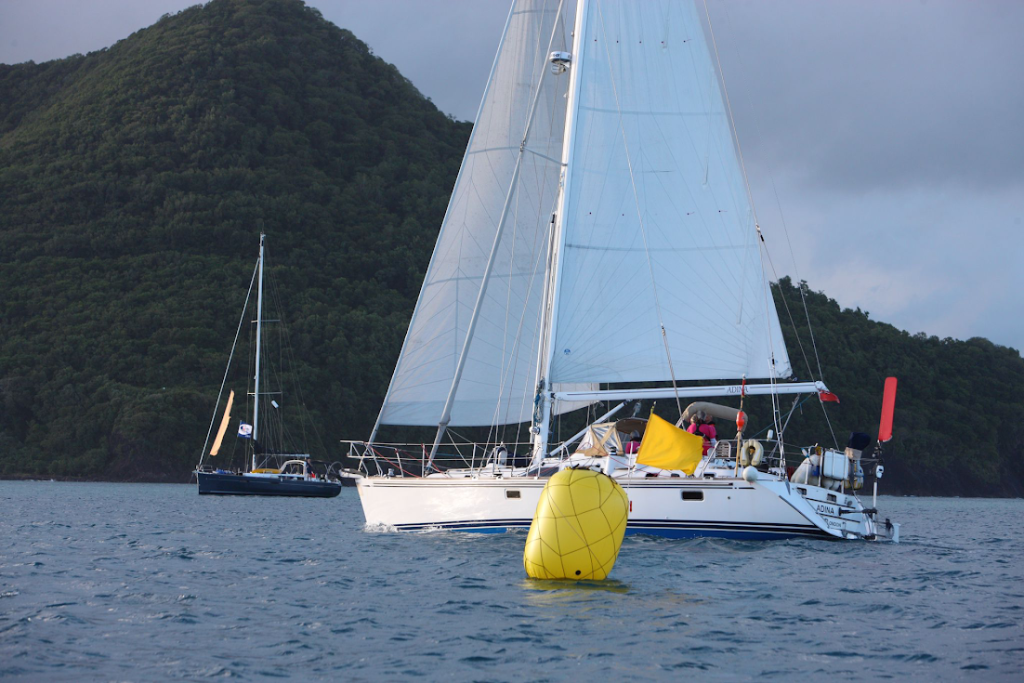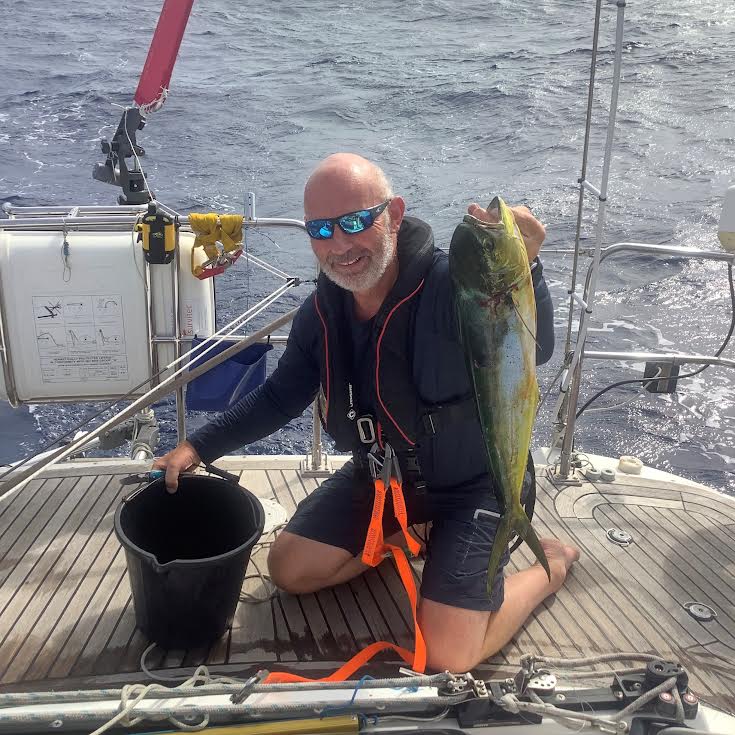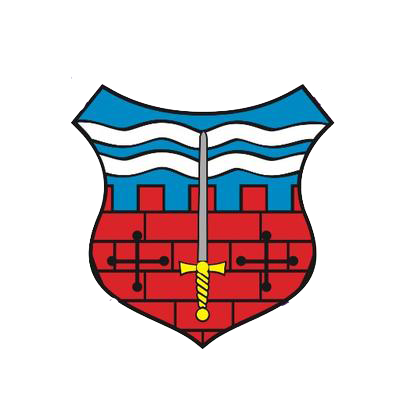What’s on your bucket list?
21st January, 2024
Have you been rowing for long?
I learnt to row at school and when I graduated in 1989 I was working near Bath so joined the local rowing club – Bath Ladies Boat Club. Then, the club rowed from the Bathampton site and I enjoyed many summers rowing in fours and the blue eight (now above the bar at the Boathouse pub), peeing behind the willow tree (there was no toilet), punting landing stages up the river (and drifting back down again as the sun went down, dressed in a DJ with tables and chairs, tablecloths and candlesticks, and bottles of grape refreshments!
Where was your sailing adventure?
The ARC (Atlantic Rally for Cruisers) started in Las Palmas, Gran Canaria on 19th November and went to Rodney Bay, St Lucia. As the crow flies (Rhum line) a distance of 2,700 nautical miles but the more traditional route, followed by Christopher Columbus and others, is to head further south ‘until the butter melts’ and benefit from the Trade Winds that blow from the east. We ended up sailing 3,044 nautical miles and arrived in Rodney Bay shortly after dawn 11th December.
And the boat?
The boat is a 46 foot long Hylas 46 – called ‘Adina’. She has already sailed around the world once, with previous owners, so she knew her way this time. She is currently in the Windward Islands and will remain in the Caribbean for the remainder of this year before continuing her journey west, through the Panama Canal (water permitting), and into the Pacific in 2025.

Who did you go with?
There were four of us on board. Three of us had sailed for a number of years together and have completed many offshore races including four Fastnet races. The three of us all knew we would get along with each other. The fourth person was the skipper’s wife. She was very brave: three blokes trapped on a 46ft long boat for three weeks with no option to get off!
Was sailing across the Atlantic always on your bucket list?
Not really – I suffer from seasickness and I didn’t think I could manage that long offshore without becoming incapacitated! I have tried all the usual medications and potions but Scopoderm patches work for me. I loved it and would recommend it to anyone – providing you know and have complete confidence in your crewmates and have a very well prepared boat.
Why did you want to do it?
I had decided not to do any more Fastnet races but having one ocean under my belt seemed a suitable finale to my offshore sailing adventures. The crew are all mates and I had confidence in the skipper, the boat and the meticulous preparations; we were going a long way offshore and if anything was to break down or fail we wouldn’t be able to call out the RNLI or Andy Wallis to come out and fix it. We had to be fully self-sufficient and be able to strip down and repair an engine, the generator, the watermaker, or repair sails, etc. Also, I’m getting older and thought that if I don’t do it now I won’t get the chance, or be physically able, to do something like this again.
Did it live up to your expectations?
It exceeded my expectations in many ways – my crewmates were great, they put up with my snoring and lack of cooking expertise on a roller coaster. The weather was benign – you would think that December in the Atlantic Ocean would be horrendous but in reality the wind was mostly 20-25 kts and usually from behind us. It did rain, but it was warm, heavy showers and we soon dried off. We wore shorts and a T-shirt most of the time… and bare feet.
What were the highs and lows?
The highs:
The wildlife. A turtle, dolphins (a large pod of about 40 who stayed with us for about an hour playing in our wake and jumping through our bow waves, banging their tails on the surface), three pilot whales who came along, inspected us and continued on their way.
Oh and the stars – billions of them. Offshore on a cloudless night there is no light pollution. The Milky Way, the planets and all the constellations are all very clear. During our preparations in Las Palmas we were briefed by Stokey Woodall (an astronomer and sailor), about what to look out for, how to tell the time using the Pole Star and which stars to navigate by (just in case our instruments failed!)
Catching fish (eventually, it took a few goes) – out of the sea and into the pan – low carbon, line caught, sustainable food. The reception we received in St Lucia and relaxing in the Caribbean for a week after we had arrived.

The lows:
The rolling – we mainly sailed with two sails up – one out on each side – a ‘wing on wing’ configuration. Good for going dead downwind but susceptible to rolling the boat severely. Sleeping was difficult and we all suffered from sleep deprivation as a result. Even with lee cloths to keep us in our bunks we still slid about and no amount of spare bags and cushions could jam us in sufficiently tight to allow us to lie still.
Lack of air – it was hot below deck. The outside temperatures increased from about 25 to 29 degC as we went west. On deck there was a breeze, but below there was no air and we could not open many of the hatches as the sea was rough enough for the occasional wave to flop over the deck and pour inside the boat.
Mid Atlantic seaweed – big patches of it that collected our rudder and keel and slowed the boat down. If it gets worse, it will clog the ocean for future generations – it’s very worrying.
Arriving home – I had taken two months off work to do this trip and arriving back at Gatwick on a cold and wet December morning, completely unprepared for Christmas, with the prospect of going back to work in a few days time!
What did you learn from the experience?
Train hard – prepare for the worst and hope for the best.
There were huge amounts of preparation – too much to list here – but I learnt so much. Most importantly, I learnt to be bold. Most people will be amazed by what they can do if you put their minds to it. Just grab each opportunity that comes your way.
What’s next?
Who knows? Pacific perhaps?
